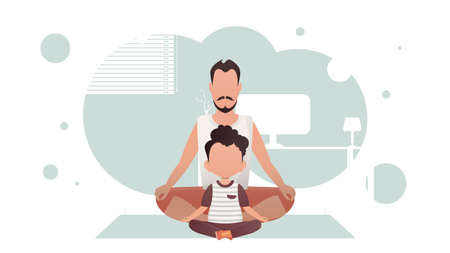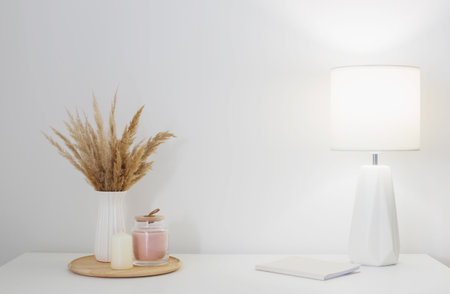Understanding Minimalism in the British Context
Minimalism, as a lifestyle and design movement, has taken root in many parts of the world, but its expression in the UK is distinctly shaped by local culture and history. In Britain, minimalism is not just about owning fewer possessions; it is closely tied to deep-seated values such as understatement, practicality, and resilience. The British tradition of ‘making do and mending’—a mindset forged during times of scarcity such as the Second World War—still echoes in contemporary approaches to decluttering. Rather than dramatic gestures or overt displays, British minimalism tends to favour subtlety and functional simplicity. This can be seen in everything from interior design—think pared-back Georgian townhouses with their calm palettes—to everyday habits like tidying up regularly and prioritising quality over quantity. The national appreciation for modesty and discretion means that decluttering in the UK often focuses on creating calm, liveable spaces rather than stark emptiness. As a result, British minimalism supports mental health by fostering an environment where mindfulness thrives, helping individuals feel more grounded and less overwhelmed by excess. The movement’s roots in local culture ensure that minimalism here is both pragmatic and emotionally resonant, making it a unique approach to well-being.
2. Decluttering: More Than Just a Trend
In the UK, decluttering has evolved far beyond a fleeting trend; it now signifies a deeper, more mindful approach to everyday living. Once seen as simply tidying up, the act of decluttering is increasingly woven into the fabric of British life, reflecting a shift towards sustainability and conscious choices. This change is not just about creating space in one’s home but about cultivating mental clarity and emotional wellbeing—a connection that resonates strongly with UK residents seeking balance amidst modern pressures.
The Rise of Minimalism in British Culture
Minimalism, once perceived as an imported lifestyle from Scandinavia or Japan, has found its own distinct voice within the UK. British minimalism carries echoes of heritage—think clean lines inspired by Georgian architecture and the understated elegance of classic British interiors. However, today’s minimalists are motivated by more than aesthetics; environmental awareness and mental health are key drivers.
Decluttering as a Lifestyle Choice
Increasingly, Britons are viewing decluttering as a deliberate lifestyle choice rather than a seasonal activity. The rise of local charity shops, community swap events, and online marketplaces such as Gumtree and Freecycle highlights how decluttering supports both sustainability and social good. It’s about rehoming items responsibly and reducing waste—a reflection of broader societal values around conscious consumption.
How Decluttering Reflects Broader Shifts
| Aspect | Traditional View | Modern UK Approach |
|---|---|---|
| Purpose | Spring cleaning or moving house | Ongoing process for wellbeing |
| Outcome | Tidy spaces | Mental clarity & reduced stress |
| Sustainability | Throwing away unwanted items | Donating, recycling, upcycling |
This move towards minimalism aligns with wider movements such as zero-waste living and mindful consumption. For many in the UK, less truly is more—not only for their homes but for their minds and communities. Decluttering has become a pathway to intentional living, echoing the nation’s growing commitment to mindfulness, environmental responsibility, and personal wellbeing.

3. The Mental Health Benefits of a Simplified Space
Across the UK, both research and personal accounts consistently highlight the profound mental health benefits of a decluttered living environment. British psychologists have long recognised the link between our immediate surroundings and our psychological wellbeing. According to a 2021 survey by the Mental Health Foundation, nearly half of Britons reported that mess and clutter in their homes increased feelings of stress and anxiety, while those who actively managed their space described greater calm and clarity.
Lifting the Fog: Stress Reduction Through Decluttering
Clutter can feel overwhelming, especially in compact British homes or busy urban flats. Studies from University College London indicate that visual chaos competes for our attention, making it harder to concentrate and process information—a phenomenon particularly relevant for those working remotely in recent years. By stripping back non-essentials, individuals report a tangible drop in daily stress levels. As clinical psychologist Dr. Emma Hepburn notes, “A simplified home acts as a quiet anchor in a noisy world.”
Anxiety and Emotional Balance: UK Perspectives
Lived experiences from across the UK reflect these findings. In interviews conducted by Mind, a leading mental health charity, participants frequently mentioned that decluttering helped them feel more in control—an important factor for reducing anxiety. The act of sorting and organising possessions also supports mindfulness, encouraging people to focus on the present moment rather than ruminating on past regrets or future worries.
Boosting Wellbeing: More Than Just Tidiness
Minimalism is not about creating a sterile space but fostering an environment where every object has purpose and meaning. Experts such as Dr. Rangan Chatterjee advocate small, consistent habits—clearing out one drawer at a time or rehoming unused items—as practical ways to enhance mood and resilience. Ultimately, embracing minimalism within a British context is less about aesthetic perfection and more about cultivating spaces that nurture emotional balance and day-to-day peace.
4. Mindfulness Through Minimalism
Minimalism is more than an aesthetic trend; it is deeply intertwined with the practice of mindfulness, particularly within the UK’s unique cultural context. The act of decluttering one’s home or workspace is, at its core, an invitation to pause, reflect, and become fully present in the moment. As clutter is reduced, mental clarity often emerges—allowing individuals to focus on what truly matters. British mindfulness practitioners frequently highlight how engaging in decluttering rituals encourages a mindful approach to daily life, reinforcing habits of presence and self-reflection.
The Decluttering Process: A Path to Presence
Decluttering requires us to make conscious decisions about our belongings, prompting questions such as “Do I need this?” or “Does this item add value to my life?” This deliberate evaluation cultivates awareness and intentionality—qualities at the heart of mindfulness. In the UK, where traditional homes can be compact and storage space limited, these choices become even more meaningful. Many Britons find that simplifying their environments helps manage stress and enhances their sense of control amidst busy urban lifestyles.
How UK Mindfulness Practitioners Integrate Minimalism
British mindfulness coaches and therapists often incorporate decluttering as part of their recommended wellbeing routines. By approaching tidying as a mindful activity rather than a chore, individuals learn to observe their thoughts and emotions during the process. Some UK-based mindfulness groups suggest setting aside regular “declutter hours” each week, allowing for incremental progress while nurturing a habit of being present.
Practical Strategies for Mindful Decluttering
| Strategy | Description | UK Context Example |
|---|---|---|
| Room-by-Room Focus | Tackle one room at a time to prevent overwhelm and maintain attention. | Start with the kitchen—common in British flats—and notice emotional responses to each item. |
| Sensory Awareness | Pay attention to sounds, textures, and scents while decluttering. | Notice the feel of well-worn tea towels or the scent of old books on a classic English bookshelf. |
| Mindful Donation | Reflect on items’ usefulness before donating them to local charities. | Consider giving gently used clothes to Oxfam or British Heart Foundation shops. |
| Journaling Reflections | Write down feelings and insights after each session. | Use a simple notebook or digital diary to track emotional patterns over time. |
This mindful approach transforms decluttering from a mundane task into an opportunity for growth and self-awareness. Through these practices, many across the UK find themselves better equipped to cope with daily stresses, fostering resilience and well-being rooted in both tradition and contemporary psychological understanding.
5. British Homes, British Habits
Minimalism in the UK must contend with the unique characteristics of British homes and lifestyles. Unlike many countries where open-plan layouts and spacious rooms are common, typical UK living spaces tend to be more compact, often featuring smaller rooms and multifunctional areas. This has roots in both historical architecture and modern housing trends, with terraced houses, semis, and flats shaping how Britons interact with their possessions.
Compact Spaces: The Norm Rather Than the Exception
From Victorian terraces in Manchester to Edwardian semis in the suburbs of London, British homes are rarely sprawling. Living rooms might double as dining areas or home offices, while spare bedrooms frequently serve as storage or hobby spaces. As a result, clutter can accumulate quickly and feel overwhelming—making minimalism not just an aesthetic choice but a practical necessity for many.
Challenges Unique to the UK
One nation-specific challenge is the lack of large storage areas such as basements or expansive attics commonly found elsewhere. Many British homes make do with modest under-stair cupboards or small garden sheds. Moreover, unpredictable weather adds another layer: coats, wellies, umbrellas, and seasonal gear compete for space in already crowded halls and closets.
Cultural Attitudes Towards Possessions
The British relationship with belongings is also coloured by tradition and thrift. Heirlooms, charity shop finds, and “just in case” items are often kept out of sentimentality or practicality. Yet these habits can conflict with minimalist ideals, requiring a mindful approach that respects heritage while embracing simplicity.
Practical Solutions for British Minimalists
Adapting minimalism to fit UK living means focusing on clever storage solutions—think built-in shelving, multi-purpose furniture like ottoman beds or extendable tables, and creative use of vertical space. Regular decluttering sessions become essential rituals rather than sporadic events. Local initiatives such as community swaps or Freecycle groups also help households reduce waste while letting go of excess items responsibly.
Embracing Mindfulness at Home
Ultimately, minimalism in Britain thrives when it is tailored to local realities: acknowledging smaller footprints, celebrating resourcefulness, and fostering a culture of conscious consumption. By reimagining what it means to live well within limited space, Britons can create homes that support both mental clarity and mindful living.
6. Community Approaches: Shared Spaces and Social Impact
Minimalism in the UK is not just an individual journey—it thrives within community contexts, strengthening social ties and fostering collective wellbeing. One of the most prominent ways this manifests is through the deeply embedded culture of charity shop donations. Britons regularly clear out their wardrobes and homes, gifting pre-loved items to local charity shops. This simple act does more than declutter living spaces; it supports charitable causes, reduces waste, and creates affordable shopping opportunities for others, reflecting a shared commitment to sustainability and mutual aid.
The rise of local swap events further underlines minimalism’s social dimension. From neighbourhood clothes swaps to book exchanges in village halls, these gatherings encourage residents to rehome items they no longer need while discovering new treasures without buying new. Such events are more than practical—they nurture a sense of belonging and cooperation, as people engage face-to-face and collectively reduce their environmental footprint.
Resource sharing has also taken root across British communities, with initiatives like community tool libraries and repair cafés becoming increasingly popular. These shared spaces allow individuals to borrow or mend rather than buy, reinforcing values of stewardship and interdependence. By pooling resources, communities not only minimise clutter but also make sustainable living more accessible and inclusive.
Ultimately, decluttering and minimalism in the UK extend beyond personal benefit. They strengthen communal bonds, cultivate mindfulness about consumption, and inspire generosity—hallmarks of a society attentive to both mental health and collective prosperity.
7. Practical Steps for Embracing Minimalism in the UK
Start Small, Think Local
Minimalism need not be overwhelming or drastic; beginning with a single drawer, a wardrobe shelf, or your daily bag is a manageable way to make progress. British homes often contend with limited storage space, so targeting clutter hotspots—like the hallway, the under-stairs cupboard, or the airing cupboard—can be especially rewarding. Remember that charity shops are plentiful throughout the UK and provide an ethical, sustainable route for passing on unwanted items, giving them a new lease of life within your local community.
Seasonal Decluttering: A British Approach
The UK’s distinct seasons offer natural opportunities to review possessions. During spring cleaning—a time-honoured tradition—evaluate winter coats and boots, while autumn is perfect for revisiting summer gear. Making decluttering part of your annual rhythm helps prevent build-up and aligns with cultural practices like the ‘big tidy’ before Christmas or New Year.
Mindful Consumption and Community Connections
Before making new purchases, consider the longevity and necessity of each item. The rise of local zero-waste shops, repair cafes, and community swaps offers alternatives to buying new and supports mindful consumption. Connect with local Facebook groups or apps like Olio and Freegle to give away items or source second-hand treasures, reinforcing a sense of community and reducing environmental impact.
Accessible Resources for Support
If you’re seeking guidance, organisations such as Mind UK offer advice on how decluttering can support mental health. Many local councils run recycling schemes and provide information about responsible disposal of electronics or bulky items. For inspiration and practical tips tailored to British living, look for blogs or podcasts by UK-based minimalists—these often address challenges unique to our culture and housing.
Cultivating Lasting Habits
Minimalism is not a one-off project but an ongoing mindset. Set regular reminders in your calendar—perhaps at the start of each school term—to review possessions as family needs change. Celebrate small wins: whether it’s reclaiming kitchen worktop space for a proper cuppa or finally letting go of unused wellies, each step contributes to greater mental clarity and calm.


